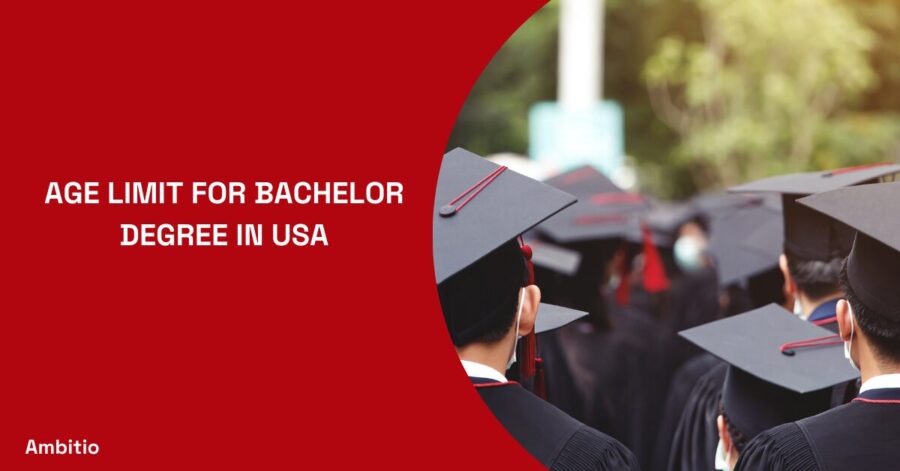14 December 2024
6 minutes read
Is There an Age Limit for Bachelor’s Degrees in the USA?

Embarking on a journey towards higher education is a pivotal step for many individuals. In the United States, the landscape of undergraduate education is vast and varied, offering a plethora of opportunities for learners of all ages. This comprehensive exploration addresses the query: Is there an age limit for bachelor degrees in the USA?
The Ageless Pursuit of Higher Education
A Closer Look at the Non-Existent Age Limit
Contrary to some beliefs, the US education system does not enforce an age limit for those wishing to pursue an undergraduate degree. This inclusive approach opens doors for individuals who may have delayed their studies due to various life circumstances.
It’s essential to understand that colleges and universities in the US value the diversity and unique perspectives that non-traditional students bring to the classroom.
The absence of an age limit is particularly encouraging for those who have spent years in the workforce and seek to enhance their qualifications or change career paths.
Whether you are in your late 20s, mid-40s, or even entering your golden years, higher education is accessible. Institutions across the country offer a range of options, from full-time, on-campus programs to flexible online courses that cater to students balancing education with other responsibilities.
Celebrating Diversity: Older Students on Campus
The presence of older students on campus is celebrated for enriching the educational environment. Their life experiences contribute to a more robust and diverse academic community, which benefits all students.
Many institutions have support systems in place, such as counseling services, career advice, and study groups, specifically tailored to the needs of non-traditional students.
For those concerned about fitting in, universities and colleges host various clubs and organizations that bring together students from different age groups and backgrounds. This integration allows for a shared learning experience that transcends age, promoting a culture of mutual respect and intellectual growth.
Navigating the Academic Landscape as an Older Student
Decoding the Application Process
The application process for older students is similar to that of traditional students. Admissions departments look for candidates who show academic potential, a commitment to learning, and the ability to contribute positively to the university community. Standardized test scores, such as the SAT or ACT, may not be required for older students, especially if they have been out of high school for several years.
Colleges may place more emphasis on work experience, professional achievements, and other life experiences that indicate readiness for college-level work. Letters of recommendation can also carry more weight, particularly those that attest to an applicant’s work ethic, leadership skills, and ability to collaborate effectively with others.
Financial Considerations for the Mature Student
Financial considerations are often a significant concern for older students. Fortunately, there is a wide array of financial aid options available, regardless of age. Federal and state grants, loans, and work-study programs are open to all qualifying students.
Additionally, many scholarships do not have age restrictions and are awarded based on merit, field of study, or life circumstances, such as returning to school after a period of work.
It’s important for mature students to conduct thorough research on available financial aid and to apply as early as possible. Speaking with a financial aid advisor at the university can provide insights into the types of aid for which an older student may be eligible and guide them through the application process.
The International Perspective: Age Limits and Global Students
Understanding the International Student Demographic
For international students, the US remains one of the most sought-after destinations for higher education. These students add to the rich tapestry of the university populace, bringing global perspectives into the academic debate.
When it comes to age, international students face no age barriers when applying to undergraduate programs in the US. Instead, their acceptance is contingent upon meeting the institution’s academic requirements and demonstrating English language proficiency.
International students of all ages must navigate the visa application process, which involves securing an I-20 form from the university and demonstrating the financial ability to support their studies in the US. Universities often have dedicated international student offices to assist with these processes and ensure that applicants from abroad understand the steps involved in becoming a student in the US.
The Value of Diversity in Higher Education
Diversity, including age diversity, is a cornerstone of the educational philosophy in the US. It fosters an environment where students from different backgrounds can share experiences and learn from one another. Older international students often bring a wealth of professional and life experiences that can enhance discussions and add depth to academic inquiry.
Exploring Degree Options: Community Colleges to Ivy Leagues
The Spectrum of Undergraduate Degrees
The US educational system offers a broad spectrum of undergraduate degrees tailored to a diverse student body. Community colleges provide two-year associate degree programs that often cater to students seeking vocational training or a cost-effective pathway to a four-year degree.
These institutions are known for their flexible scheduling, which includes evening and weekend classes, making them a practical choice for students who are working or have family obligations.
Four-year institutions, including both public state universities and private colleges, offer bachelor’s degrees across a wide range of disciplines. Older students may find these programs appealing for their depth of study and the opportunities they provide for research, internships, and networking.
Tailoring Education to Life Experience
Many universities now offer degree completion programs, designed for students who have some college credit and wish to finish their undergraduate degree. These programs recognize the value of prior learning and provide a pathway for students to apply their work and life experience toward their degree.
Universities also offer online and hybrid programs that combine online coursework with occasional on-campus sessions. These programs are designed with flexibility in mind, allowing students to balance their studies with other life commitments.
The Community College Advantage
Accessibility and Affordability
Community colleges are an excellent starting point for older students, particularly those who are concerned about the cost of education or are returning to school after a significant break.
These colleges offer affordable tuition rates and often have open enrollment policies, allowing students to begin their studies without the competitive application processes found at some four-year universities.
Transitioning to a Four-Year University
After completing a two-year program, students have the option to transfer to a four-year university to pursue a bachelor’s degree. This pathway is especially beneficial for older students who may wish to ease into the academic environment or who are looking for a more affordable way to achieve a four-year degree.
Lifelong Learning: The Road to a Degree at Any Age
Embracing the Journey of Education
Lifelong learning is a concept that resonates deeply within the US educational system. The journey to a degree is seen as a personal and professional development process that can be embarked upon at any stage of life. Colleges and universities encourage this mindset by offering a range of programs that cater to the lifelong learner.
The Importance of Continuous Education
In an ever-changing job market, the importance of continuous education cannot be overstated. For those seeking to stay competitive or shift to a new career, obtaining a bachelor’s degree can be a crucial step. Universities and colleges understand this need and strive to provide programs that are relevant to the demands of today’s workforce.
Resources and Support for Non-Traditional Students
Resources and support systems for non-traditional students are abundant in the US educational landscape. Academic advising, career services, and mentorship programs are often available to help older students navigate their educational journey. These resources ensure that students of all ages can find the support they need to succeed.
Conclusion: Age Is Just a Number in US Higher Education
The question of an age limit for a bachelor’s degree in the USA is one that reflects the inclusivity of the American education system. With no formal age restrictions in place, the pursuit of an undergraduate degree remains a viable and encouraged option for individuals across the lifespan.
The US higher education system is structured to accommodate students of all ages, providing opportunities for personal growth, career advancement, and lifelong learning.
Whether domestic or international, young or mature, all students are welcomed into a community that values diversity, experience, and the richness that comes with an inclusive approach to learning. As we have explored, the path to a bachelor’s degree in the US is one without age barriers, offering a world of possibilities for those willing to take the leap.
FAQs: Age Limits and Undergraduate Study in the USA
Is there a maximum age limit for applying to undergraduate programs in the US?
No, there is no maximum age limit for starting an undergraduate degree in the US.
Can older adults receive financial aid for undergraduate programs?
Yes, financial aid is available to qualifying students of all ages.
Are there specific programs for older adults at US universities?
Many universities offer programs tailored to older adults, including part-time and evening courses.
Can international students of any age study in the US?
Absolutely, as long as they meet the academic and language requirements.

You can study at top universities worldwide!
Get expert tips and tricks to get into top universities with a free expert session.
Book Your Free 30-Minute Session Now! Book a call now




























